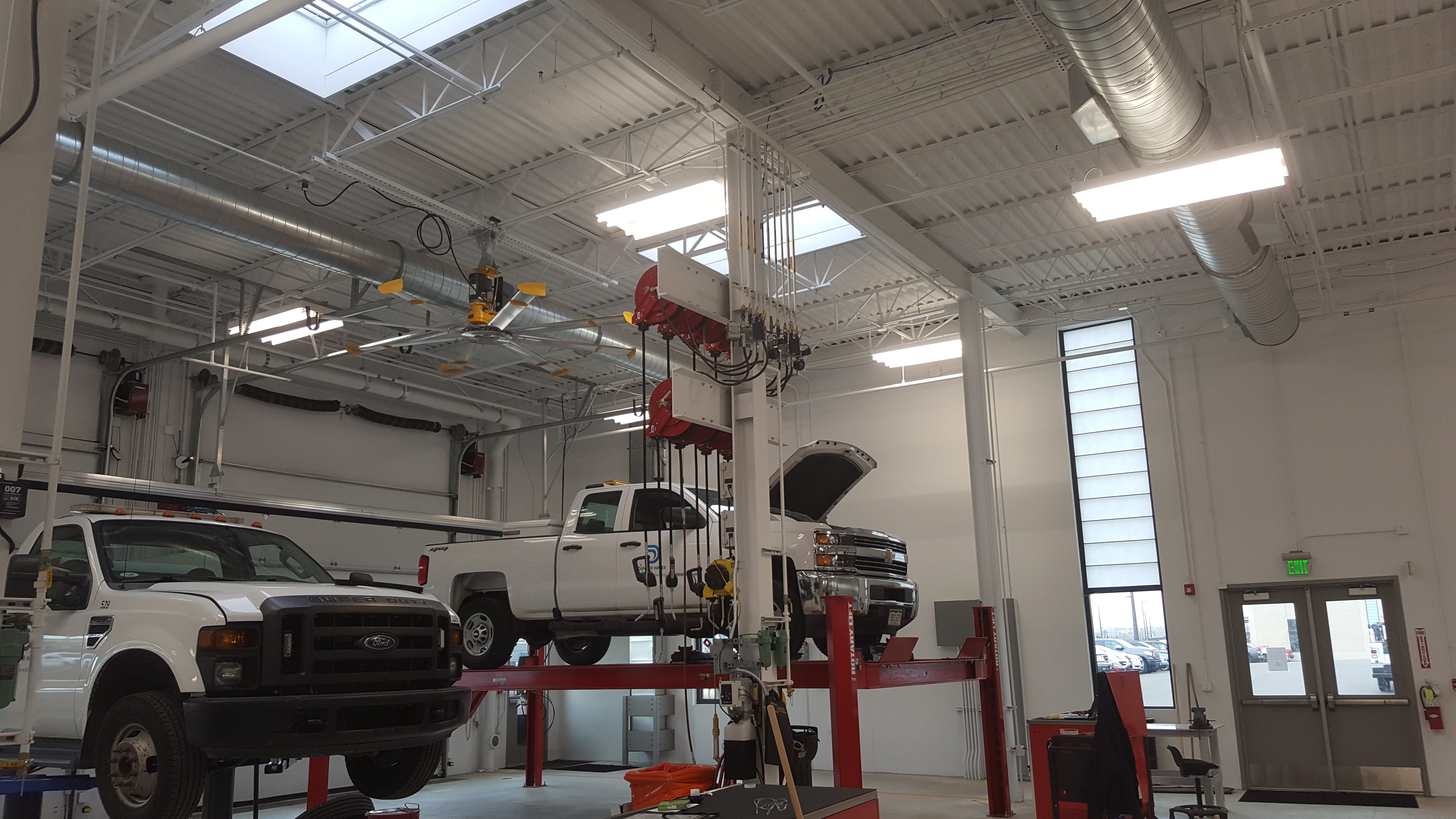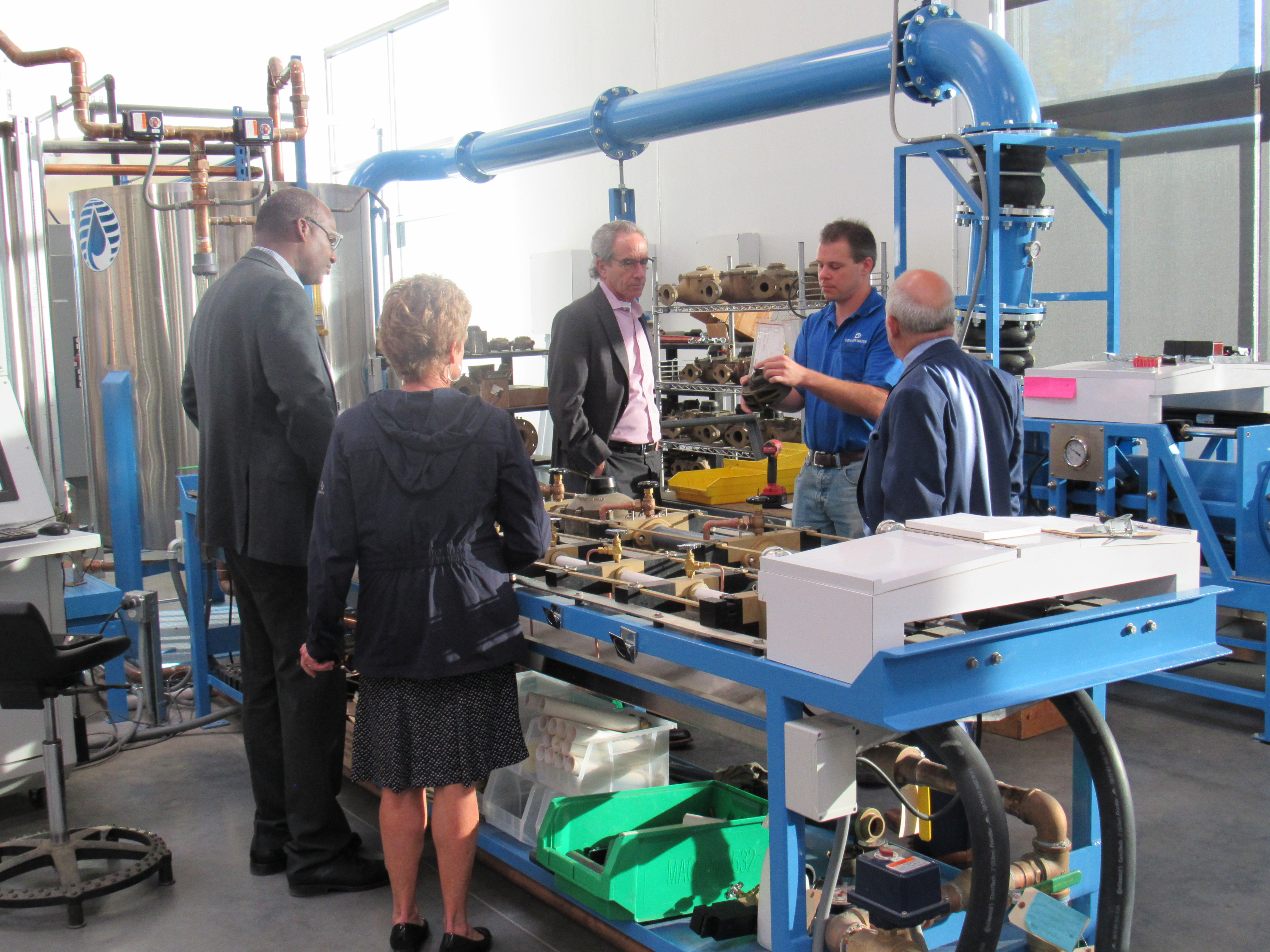
Building for the future on a sustainable foundation
When your work is inextricably entwined with the environment, sustaining important natural resources like energy and the environment is crucial, which is why Denver Water’s sustainability efforts go well beyond water.
It’s all connected, after all.
“Due to climate change and future uncertainties, innovation, resilience and adaptability are necessary in our planning and development in order to serve our customers using fewer resources,” said Kate Taft, Denver Water’s sustainability manager. “We want to serve and care for the community and environment that we live in by continually improving our operations.”
Case in point, Denver Water’s Operations Complex Redevelopment.
In 2012, Denver Water kicked-off its $202 million project to renovate the entire 35-acre operations complex near downtown Denver to make it more operationally efficient, publicly accessible and as sustainable as possible.
The average age of buildings before the redevelopment was 55 years, with the oldest building being 130 years old. The new complex includes equipment and trade shops, vehicle maintenance garages, an Administration Building and a state-of-the art warehouse.
Here are some highlights of the redevelopment project:
- When completed in mid-2019, the redeveloped complex will include eight LEED-certified buildings, including four new buildings that provide support to our operations, maintenance, meter and other crews working in the field.
- The complex’s Administration Building will really push some boundaries with an aim to offset 100% of its energy load with solar power. We are pursuing LEED (Leadership in Energy and Environmental Design) Platinum status, the highest level awarded by the U.S. Green Building Council, as a measure of a building’s sustainability and resource efficiency.
- The four new operations-based buildings, the Warehouse, Fleet Services, Trade Shops and Meter Shop, all have radiant tubing in the floors to reduce the need for traditional heating and cooling systems. A central utility plant for the complex also uses water circulated in a closed-loop system from a drinking water conduit to provide supplemental heating and cooling.
- Previously, we were not able to recapture the water used to test flow rate measurements on meters. In our new Meter Shop, we can recapture and recycle that water for use in multiple meter tests.
- More than 85% of the workspaces in our new buildings will have natural light during the day. The lighting controls in the buildings adjust based on the amount of daylight coming through the windows. And the systems turn the lights off when they’re not needed.
- The complex will use a One Water strategy, which calls for linking the right source of water to the appropriate use. Thanks to the state health department’s recent expansion of Regulation 84, which governs reclaimed water use in Colorado, the complex will have a local wastewater recycling system to treat water for indoor toilet flushing and outdoor landscape irrigation. We will also collect rainwater and reuse it to irrigate the landscaping, which will include native and drought-tolerant plants. A One Water strategy reduces the demand for drinking water, which will only be used in the Administration Building’s sinks and drinking fountains.
- The buildings were designed with the health and wellness of our employees in mind. Natural light, temperature control, treadmill work stations, employee break rooms, collaborative and private work spaces, green spaces, outdoor work areas and ergonomic work furniture are just a few of the features that will contribute to the overall well-being of our employees.
- The campus will be more easily accessible to the public, allowing for increased public outreach and education opportunities around the efficient use of water.
Denver Water has already been recognized for some of these efforts.
The City and County of Denver’s Office of Sustainability recently awarded Denver Water with its “Love This Place Implementer Award,” which recognizes sustainability leaders who are helping the city achieve its 2020 sustainability goals.
Denver Water also received the Association of Metropolitan Water Agencies’ 2018 Sustainable Water Utility Management Award, which goes to utilities that have achieved a balance of innovative and successful efforts in areas of economic, social and environmental endeavors. This includes responsibly managing resources, protecting public health, meeting responsibilities to the community and providing cost-effective services to ratepayers.
“Denver Water is never going to be satisfied with ‘good enough,’” said Brian Good, chief administrative officer overseeing sustainability efforts related to the redevelopment project. “We are always striving to do better for our customers and for our community.”


